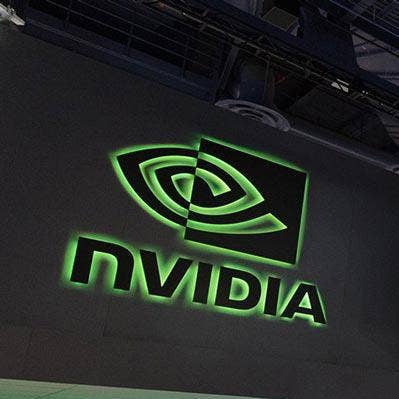Nvidia Reportedly Interested In Buying Arm From SoftBank
The chipmaker’s reported interest comes after it started working more closely with Arm last year to enable GPU-accelerated, Arm-based servers, but not everyone thinks it would be a good idea. ‘I think ARM going to a single vendor would weaken the company‘s value. It needs to go IPO and not be acquired,’ one analyst says.

Nvidia is reportedly interested in buying British chip designer Arm from its Japanese owner, SoftBank Group, which has begun exploring a potential sale or initial public offering for the business.
The Santa Clara, Calif.-based chipmaker approached SoftBank for a potential deal in the last few weeks, Bloomberg reported Wednesday, citing sources familiar with the matter. The sources said other companies interested in buying Arm could also emerge.
[Related: Nvidia's Ian Buck: A100 GPU Will 'Future-Proof' Data Centers For AI]
Arm and Nvidia declined to comment. SoftBank did not immediately respond to a request for comment.
Nvidia's reported interest comes after reports earlier this month stated that SoftBank has begun exploring alternatives for Arm, which could include a full sale, partial sale or IPO, after the Japanese holding company acquired the chip designer in 2016 for $32 billion in cash. Arm CEO Simon Segars said last fall that SoftBank wanted to return the chip designer to the public market by 2023.
It‘s also coming at a time when Nvidia’s GPUs are becoming more pervasive in data centers, particularly ones used for high-performance computing. The company now also owns a larger part of the data center equation, thanks to its blockbuster $7 billion acquisition of high-speed interconnect provider Mellanox Technologies earlier this year.
With Nvidia owning the acceleration and connectivity elements of the data center, an acquisition of Arm would give the company control over the compute element as well.
But Anshel Sag, an analyst at Moor Insights & Strategy, said the two companies wouldn‘t make a good fit, in part because Arm has a very different business model that involves licensing silicon IP to customers who want to make their own processors. Nvidia, on the other hand, develops IP to build and sell its own GPUs.
“I think ARM going to a single vendor would weaken the company‘s value. It needs to go IPO and not be acquired. Any chip vendor that buys them weakens the value,” he said in a tweet.
Nvidia and Arm have been working more closely together in recent years, most notably with a new partnership announced last fall around high-performance computing that included a new reference design and ecosystem support for GPU-accelerated, Arm-based servers.
When the partnership was announced in November 2019, the company said its Arm-based reference design platform was receiving support from Hewlett Packard Enterprise-owned Cray, HPE, Marvell, Fujitsu and Ampere, the latter of which is founded and led by former Intel executive Renee James.
These companies were expected to use Nvidia‘s reference design, which consists of hardware and software building blocks, to build their own GPU-accelerated servers for everything from hyperscale cloud service providers to high-performance storage and exascale supercomputing.
The reference design and ecosystem support arrived after Nvidia announced earlier this year in June that it would support Arm-based CPUs to enable “extremely energy-efficient, AI-enabled exascale supercomputers.” The company is doing this by making its CUDA-X libraries, GPU-accelerated AI frameworks and software development tools available to Arm developers.
“There is a renaissance in high performance computing,” Nvidia CEO and founder Jensen Huang said at the time. “Breakthroughs in machine learning and AI are redefining scientific methods and enabling exciting opportunities for new architectures. Bringing NVIDIA GPUs to Arm opens the floodgates for innovators to create systems for growing new applications from hyperscale-cloud to exascale supercomputing and beyond.”